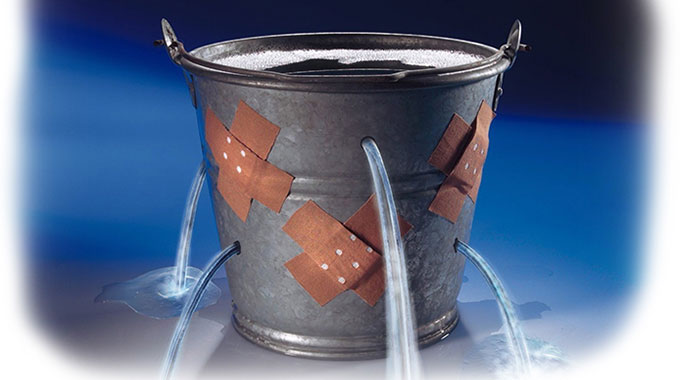
The Sunday News

Vusumuzi Dube, Senior Municipal Reporter
BULAWAYO is losing almost half of its water along its antiquated piping system before it reaches end users, further exacerbating the city’s water availability which has already seen most suburbs going for five days per week without the precious liquid.
Bulawayo City Council Director of Engineering Services, Engineer Simela Dube, said 40 percent of the water intended for use is lost before it reaches the consumers through damaged infrastructure.
“According to our last study, which is done annually, we noted that the city is losing 40 percent of water through various means. A total of 31 percent is lost through damaged infrastructure, which we clarify as physical losses. The other percentage is lost through what we call commercial losses. Here we are talking of the billing, where at times there are under estimations, inaccurate meter readings and damaged meters,” said Eng Dube.
He said the local authority was working to address the commercial losses by undertaking the replacements of meters through the Bulawayo Water and Sewerage Services Improvement Project (BWSSIP).
“Through BWSSIP we are replacing 20 000 meters in the high-density suburbs, this will go a long way in addressing the commercial losses. However, in terms of the physical losses, the long-term goal will be to replace our obsolete infrastructure but our residents should also play ball by helping protect the infrastructure so that we ensure that all our pumped water get to the end users,” said Eng Dube.
According to the project, the local authority will replace water meters in all 27 District Meter Areas in the Magwegwe and Criterion Reservoir zones. The local authority last month stated it requires US$22,75 million or $910 million to implement three medium to long term projects to ease the city’s water crisis that has resulted in council implementing a five-day weekly water shedding exercise.
Some suburbs will reportedly go until the next rainy season (towards end of the year) without water supplies and will only be serviced by council bowsers. Council last month said the depletion period of its supply dams was pegged at six months, meaning if the city does not receive any inflows it will run dry by September 2020.
In June last year, the local authority decommissioned Upper Ncema Dam and later Umzingwane Dam and expects to decommission Lower Ncema Dam this month due to depleting water levels. Since then the local authority has been implementing a water rationing regime that started with 48 hours per week, before going to 72 hours, 96 hours, 108 hours and eventually 120 hours.



